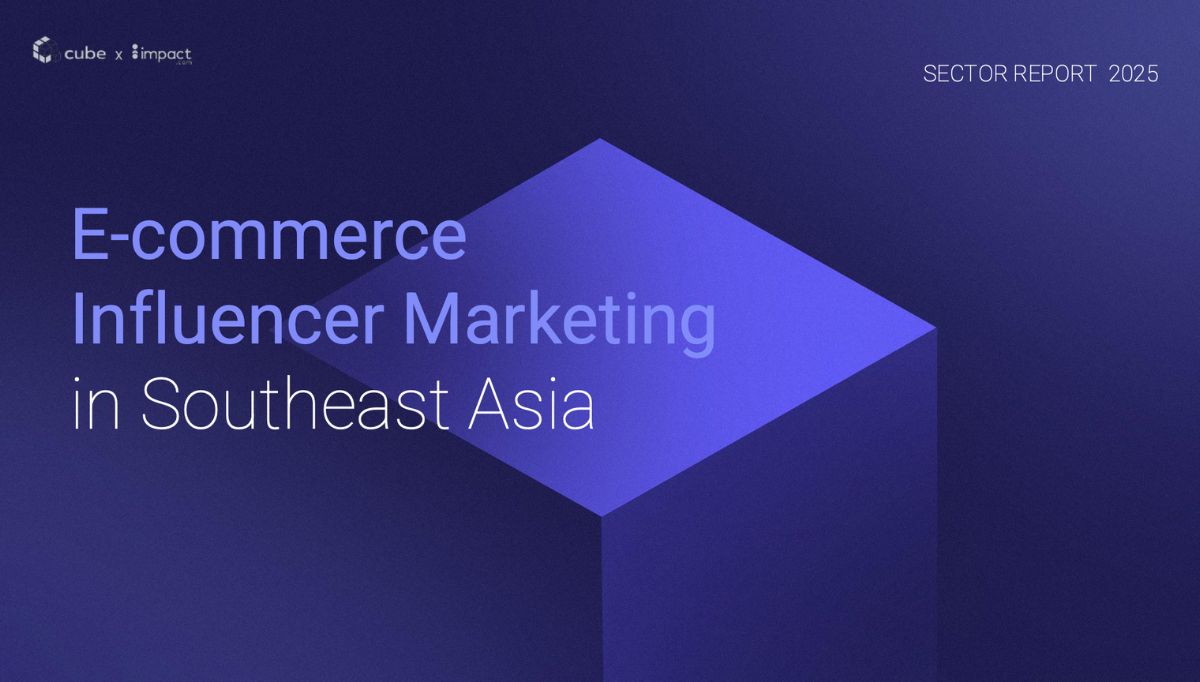impact.com, the world’s leading commerce partnership marketing platform, in collaboration with Cube, an e-commerce market intelligence provider, has released the third edition of their annual eCommerce influencer marketing report in the region. Titled ‘E-commerce Influencer Marketing in Southeast Asia’, the 2025 report reveals how affiliate marketing is emerging as a powerful engine for influencer commerce growth, as brands and creators navigate rising consumer expectations for authenticity, value, and relevance. It also provides practical insights into how brands can navigate these shifts to build effective, future-ready affiliate strategies across the region.
Based on insights from over 2,400 consumers, creators, and industry experts across six Southeast Asian markets (Singapore, Indonesia, Thailand, Vietnam, Malaysia, and the Philippines), the report examines the state of creator partnerships and offers recommendations for platform strategies to drive business growth. It reveals that social media penetration is increasing across the region, with Facebook (91%) and YouTube (89%) retaining the highest usage, and the latter clinching the top spot for engagement with influencer and celebrity content.
The research also uncovered key shifts in consumer behaviour across the region. Entertainment remains the top reason consumers engage with influencer content, but learning is becoming increasingly important, with 77% seeking entertainment and 64% looking to learn something new. The gap between influencer tiers is narrowing due to a sharper decline in trust for larger influencers, where only 59% of respondents report being influenced by mega influencers (those with over 1 million followers), marking a 7% drop from last year. Shoppable content is also proving highly effective in driving purchases, with product links shared by creators (31%) and platform-run deals (30%) outperforming brand-led promotions or influencer posts without direct purchase links.
“As consumer behaviour in Southeast Asia continues to evolve, brands need to shift away from traditional influencer models and vanity metrics, and instead embrace long-term partnerships that influence genuine purchase behaviour. Through our research with Cube, the results reinforce that performance-based marketing sits at the core of brands’ success in reaching and influencing consumers,” said Adam Furness, Managing Director for APAC, at impact.com. “Strategies such as investing in affiliate models are now becoming the foundation for sustainable and scalable growth, and we’re seeing more of this throughout the region. This year’s research then reinforces the importance of focusing on developing connections with creators in a way that drives both authenticity and measurable outcomes.”
Key takeaways for brands aiming to build or strengthen their influencer strategy include:
- Trust Wanes, Authenticity Wins
Trust in influencers is declining as audiences grow weary of overexposure and inauthentic content, with a 7% drop from 2024 in how mega-influencers affect impact on purchase decisions. Micro and nano influencers saw smaller drops, suggesting that their perceived authenticity may be holding up better amid an overall decline in trust. - Rise of the Key Opinion Sellers (KOS) segment
KOSs are emerging as a distinct and fast-growing creator segment. This is especially prevalent on platforms like TikTok Shop, where 9 in 10 top TikTok Thailand creators are KOS. - Prevalent Growth in Affiliate Marketing
Consumers are increasingly turning towards affiliate creators, with over 83% of consumers reporting that they have made purchases through affiliate links. Usage varies across verticals, with more than half having purchased beauty (62%) and fashion (54%) products through affiliate sellers. - Strong Marketplace Engagement
Marketplaces like TikTok Shop, Shopee, and Lazada offer commission rates ranging from 4 to 13%, with beauty consistently offering the highest commission rates. This points to an attractive channel for affiliate creators to tap on, with marketplaces being the top platform (34%) for product discovery – closely followed by brand websites (32%) and influencer channels (31%).
In addition to comprehensive surveys, the report features in-depth interviews with influencers, agencies, and enablers providing a deeper understanding of the evolving landscape of influencer marketing. The full research report, ‘E-commerce Influencer Marketing in Southeast Asia, is available here.
Legal Disclaimer: The Editor provides this news content "as is," without any warranty of any kind. We disclaim all responsibility and liability for the accuracy, content, images, videos, licenses, completeness, legality, or reliability of the information contained in this article. For any complaints or copyright concerns regarding this article, please contact the author mentioned above.

















